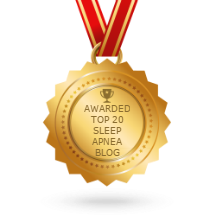Tag Archives: sleep
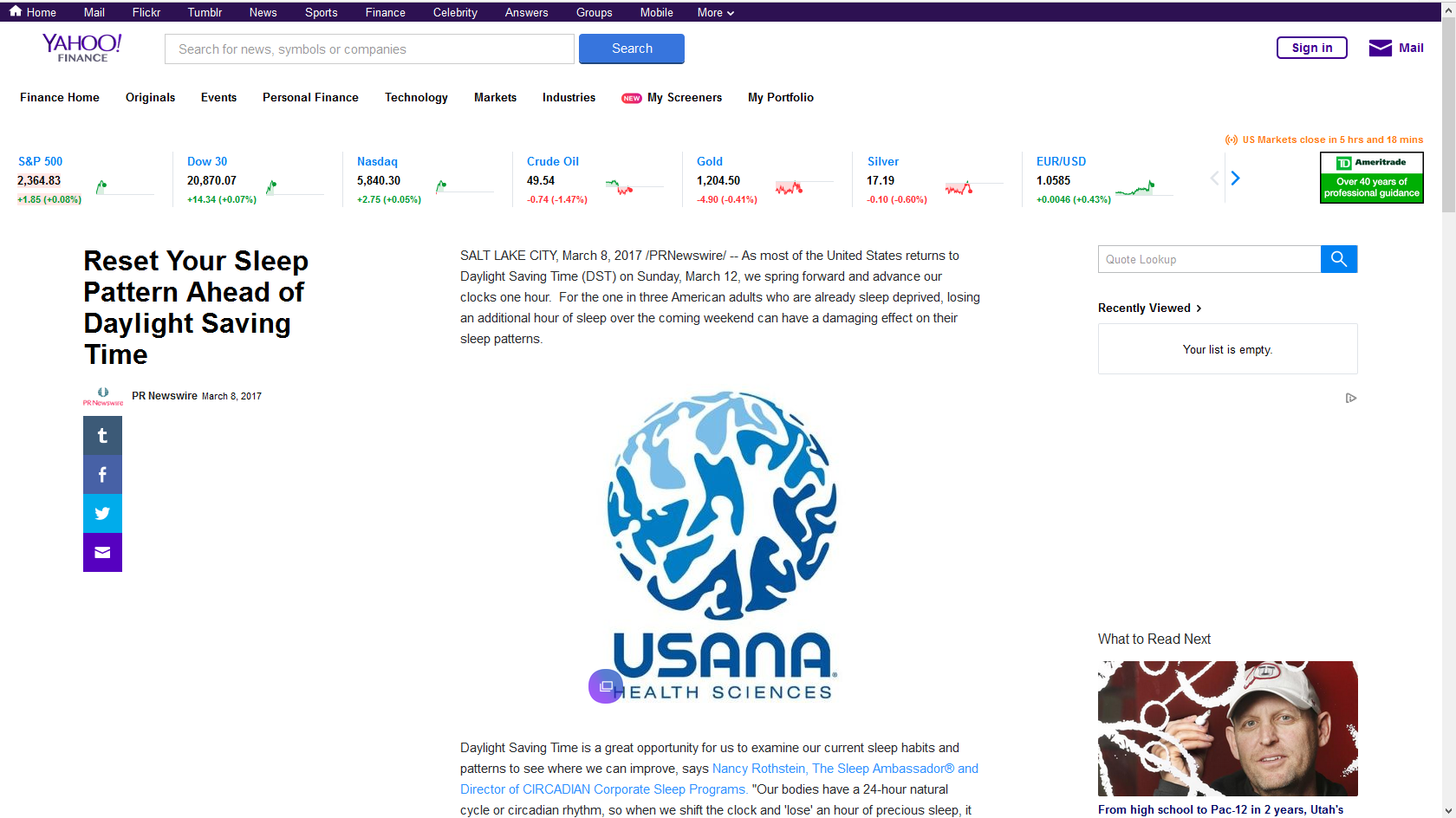
Daylight Saving Time Doesn’t Mean You Have To Lose Sleep
SALT LAKE CITY, March 8, 2017 /PRNewswire/ — As most of the United States returns to Daylight Saving Time (DST) on Sunday, March 12, we spring forward and advance our clocks one hour. For the one in three American adults who are already sleep deprived, losing an additional hour of sleep over the coming weekend can have a damaging effect on their sleep patterns.
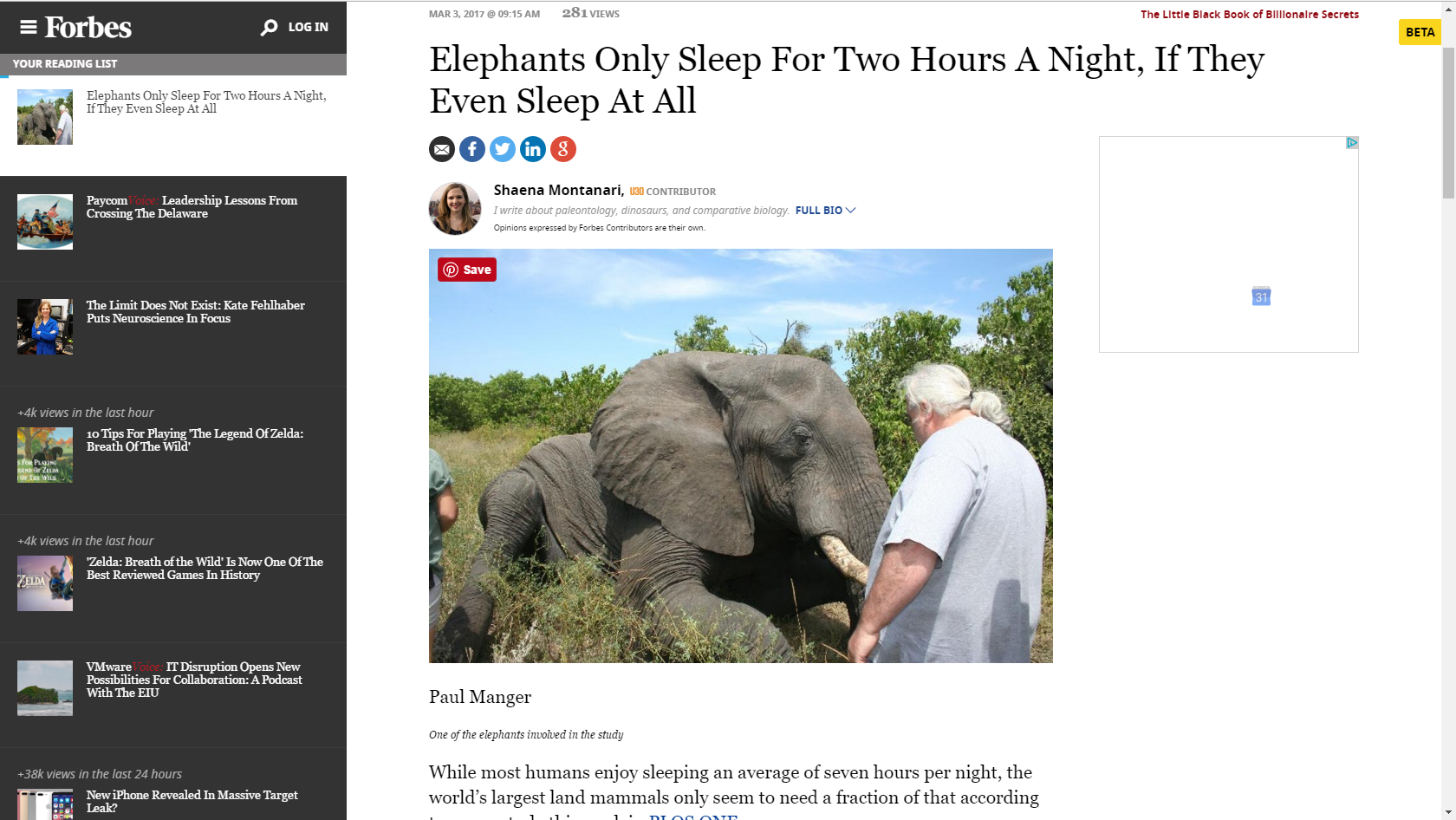
Elephants Get Very Little Sleep: How Much Will Surprise You
While most humans enjoy sleeping an average of seven hours per night, elephants, one of the world’s largest land mammals, only seem to need a fraction of that according to a new study this week in PLOS ONE.
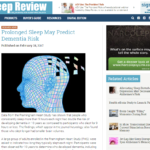
Could Prolonged Sleep Put You At Risk For Dementia?
Data from the Framingham Heart Study has shown that people who consistently sleep more than 9 hours each night had double the risk of developing dementia in 10 years as compared to participants who slept for 9 hours or less. The findings, which appear in the journal Neurology, also found those who slept longer had smaller brain volumes.

Sleep Deprivation: Why The Cure For It Could Be Closer Than You Think
Sleep Deprivation: Is There A Cure For It?
Mark Zielinski knew he was onto something when his mice stopped sleeping. Normally, the animals woke and would sleep on a 12-hour cycle. When the lights were on in the lab, the mice were active. When it went dark on a timer, down they went. But Zielinski, who teaches psychiatry at Harvard Medical School, had recently tweaked their schedule to keep the mice up past their bedtime.
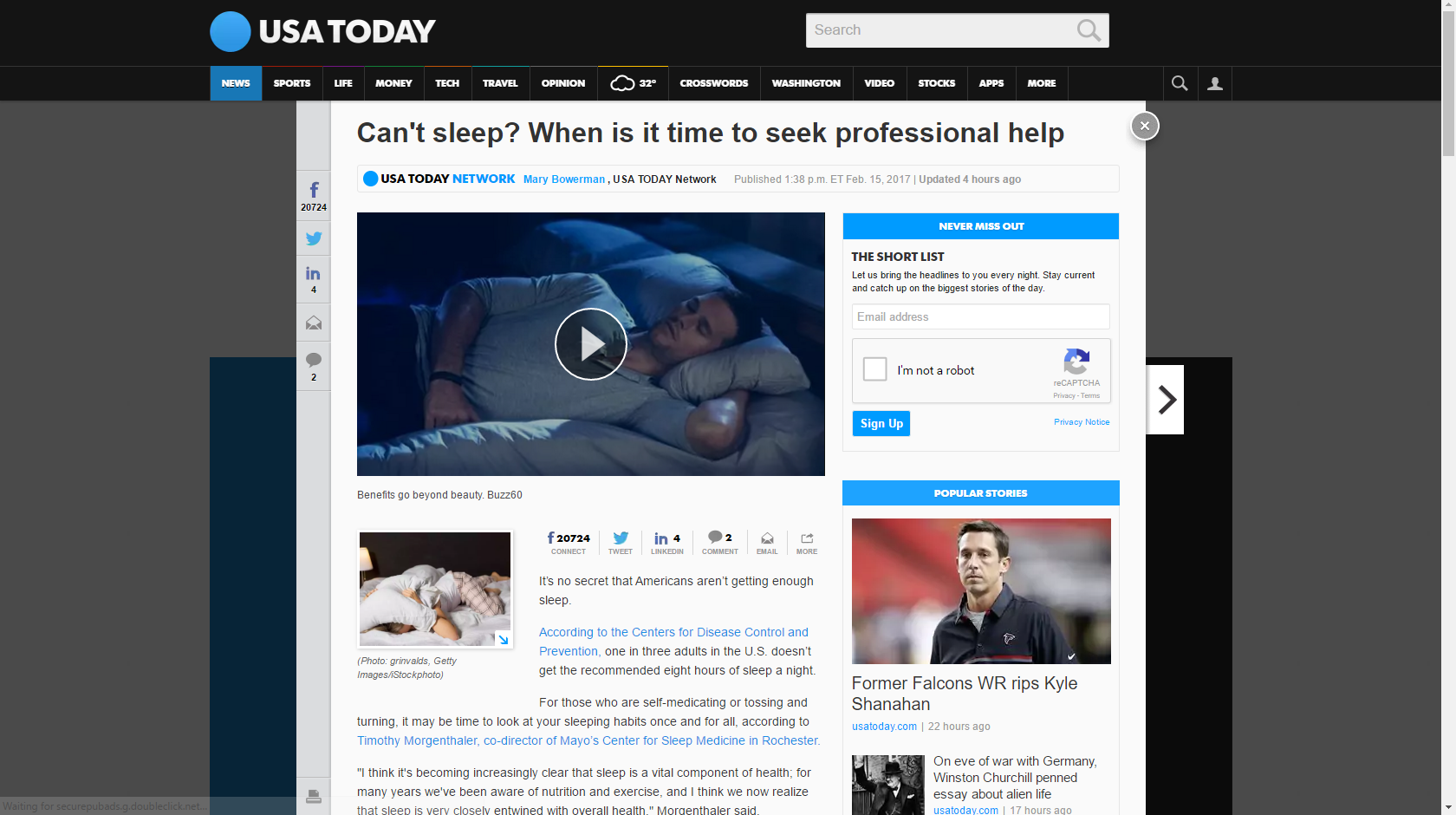
Sleep Disorder: Do you Have One, And When Should You See A Professional?
Sleep Disorder: Do You Have One? When Should You Seek Help?
It’s no secret that Americans aren’t getting enough sleep.
According to the Centers for Disease Control and Prevention, one in three adults in the U.S. doesn’t get the recommended eight hours of shut eye a night.

Tent Sleep: Science Says It’s The Best Kind You Can Get
Our circadian clocks are governed by the natural rise and fall of melatonin, the “sleep hormone” that cues off of light. In the evenings, melatonin levels rise, telling our bodies it’s time for sleep.

These Five Things Are Affecting Your Sleep; You Just Don’t Know It
Here’s something you probably never thought you’d hear from a doctor: Caffeine probably isn’t affecting your sleep. Yes, really.

Sleep: Can You Actually Train Yourself To Get Less Of It?
With so much to do, and so little time to accomplish it, sleep can feel like a waste of a precious resource. Wouldn’t it be great if we could train our bodies to need less of it?
It is possible, some research has found. But it won’t work for everyone.
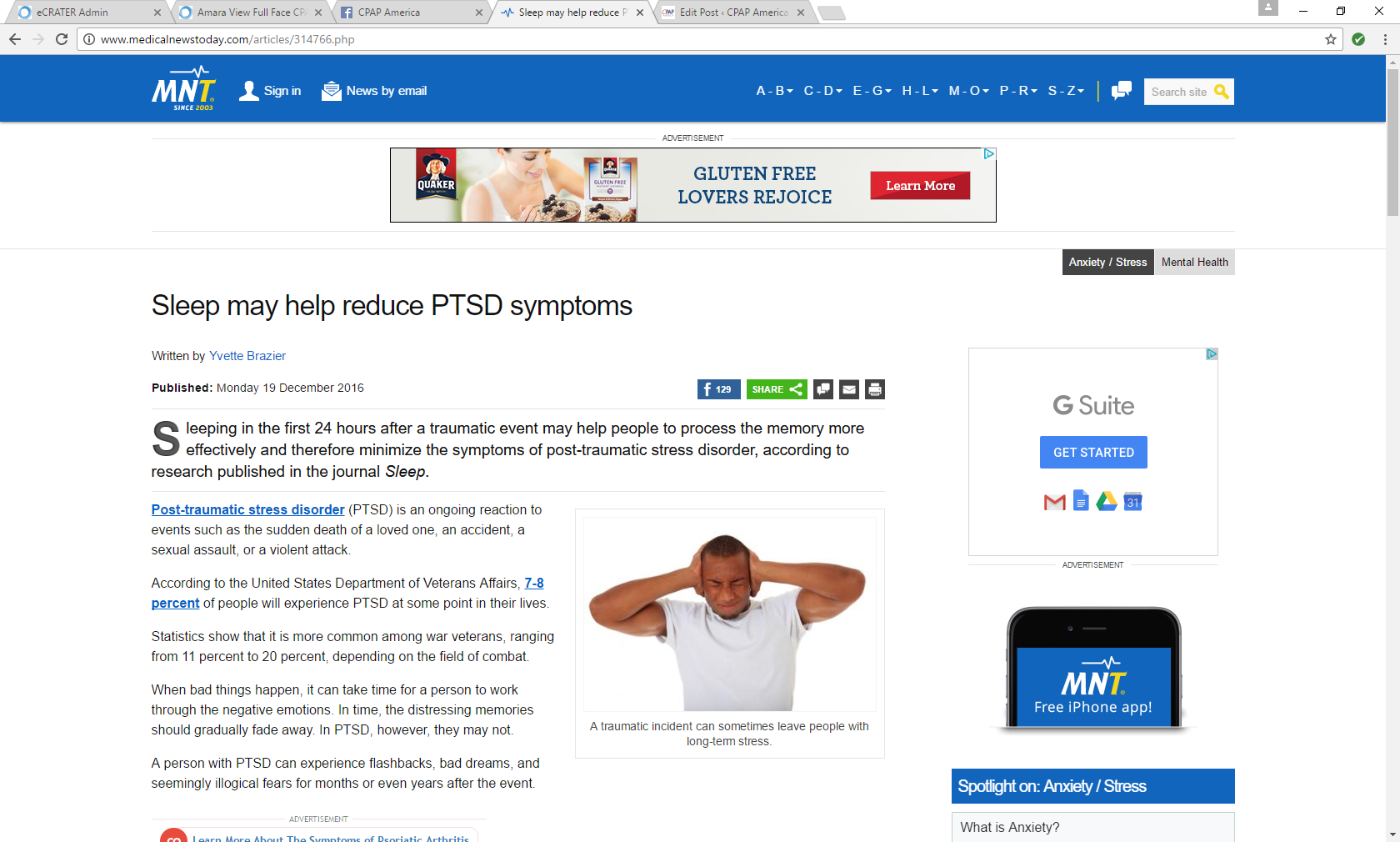
Can Sleep Help Reduce PTSD Symptoms?
Can Sleeping Help Reduce PTSD Symptoms?
Sleeping in the first 24 hours after a traumatic event may help people to process the memory more effectively and therefore minimize the symptoms of post-traumatic stress disorder, according to research published in the journal Sleep.
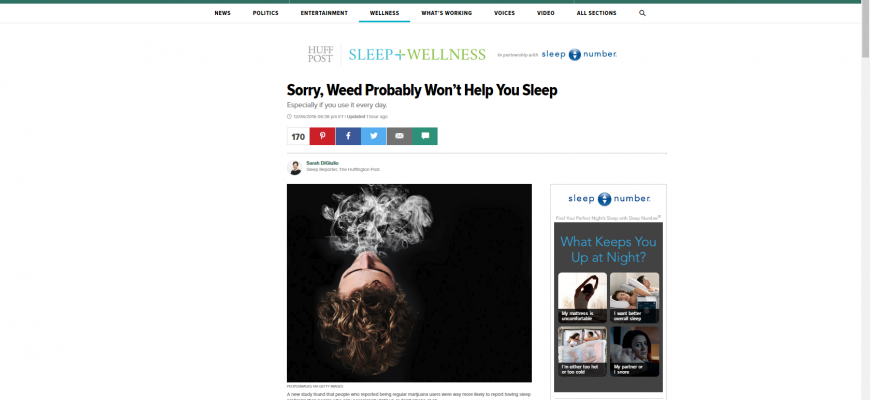
Marijuana Could Hurt Your Sleep More Than Help It
Marijuana Could Hurt Sleep More Than Help It
If you thought marijuana was helping you chill out, you might want to listen up. New research suggests it might actually have the opposite effect on your sleep.

